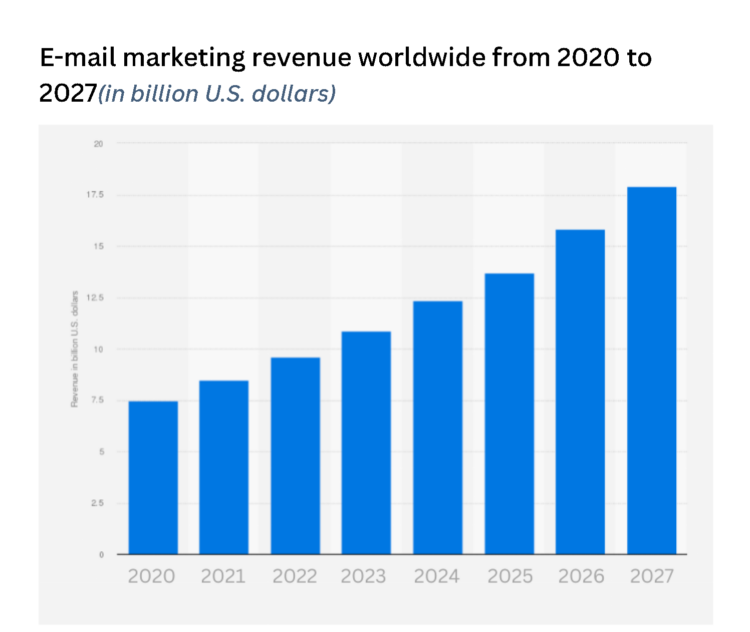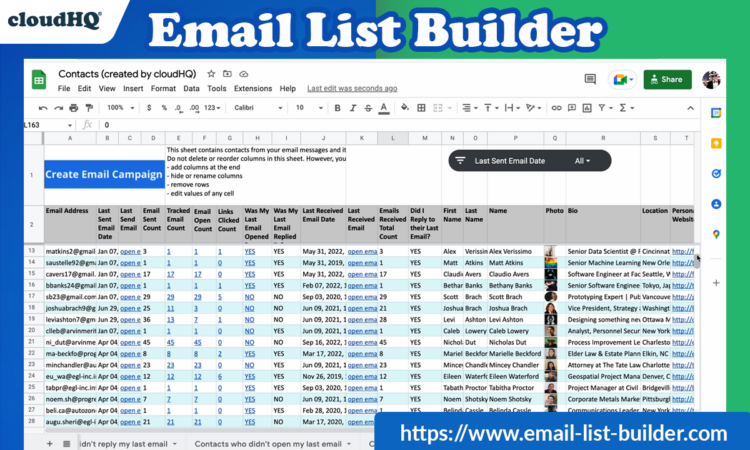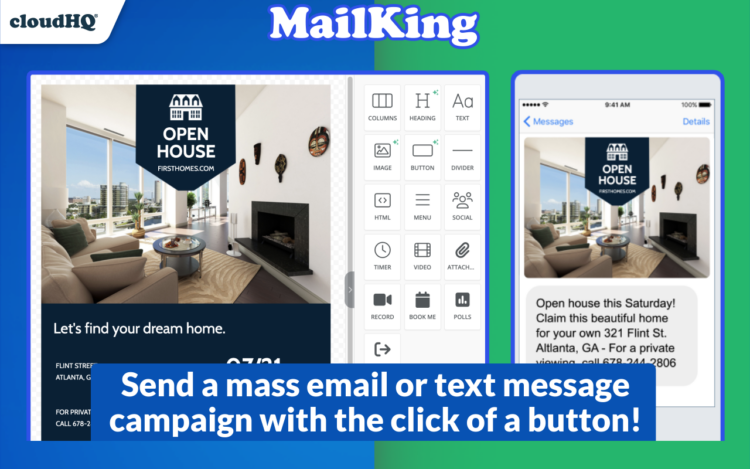Table of Contents
Did you know that the worldwide email marketing business was worth $7.5 billion in 2020 and is expected to reach $17.9 billion by 2027?

These statistics are great news for marketers worldwide. However, results from marketing initiatives vary widely depending on the type of emails you choose: inbound or outbound email marketing? Let’s overview both approaches to help you make an informed decision.
Inbound Email Marketing
Marketing to an audience that has previously interacted with your brand is called inbound marketing. These people may have subscribed to your email list. Inbound email marketing efforts keep these customers interested in and up-to-date with your business by sending them material tailored to their needs.
3 Major Benefits of Inbound Email Marketing
1. Organic Engagement
With inbound email marketing, you can expect considerably higher levels of organic engagement, and that’s just the beginning. Unlike outbound email marketing tactics, which necessitate the purchase of pricey mailing lists, inbound email marketing can be personalized to consumer interest to maximize return on investment (ROI) while reducing marketing expenditures.
2. Reduced Expense
If your customer base has shown an interest in receiving your content, you may avoid sending unnecessary emails and save money. As a bonus, you can rest assured that the recipients won’t mark your email as spam, preventing your IP address from being blacklisted.
3. Establish Trust & Credibility
It also helps establish a sense of trust with your audience, which is to convert leads. In the long run, establishing trust with your customers is a great way to win their business and demonstrate your dedication to their satisfaction. Sharing material that educates and entertains them is an organic way to increase brand awareness and loyalty.
Outbound Email Marketing
When a business engages in outbound email marketing, it advertises to consumers or potential customers via email without their express permission. It entails sending cold emails to those who have never heard of your company or are somewhat familiar with it but have never used its products or services. Usually, businesses buy email contact lists of persons who match their consumer personas to execute effective outbound email marketing.
3 Major Benefits of Outbound Email Marketing
1. Reach
One of the major benefits of an outbound email marketing campaign is that it can reach a large number of people. You can count current clients and those who have never interacted with you as part of this group.
This wide range of people increases the likelihood of word-of-mouth advertising and brand exposure to new consumers, and by narrowing in on a specific demographic, you can ensure that your ads reach the people you want to view them. Achieving sales targets gets a lot easier when the right emails are presented to the right individuals at the right time.
2. Driving Sales and Lead Generation
With outbound email marketing, you’re in the driver’s seat, directly reaching out to potential customers. It’s proactive and can rapidly expand your customer base, turning intrigued prospects into loyal customers and significantly boosting sales.
3. Amplifying Brand Awareness
Outbound email marketing doesn’t just wait in the shadows; it thrusts your brand into the limelight. It actively spreads your brand message, allows you to consistently communicate your brand’s personality, and establishes a memorable brand identity in the minds of consumers, thereby amplifying visibility.
So, Which One Should You Choose?
It takes several touch points to convert potential customers into loyal consumers. Therefore, it’s crucial to understand the difference between outbound and inbound email and adopt a varied approach that leverages both based on the customer’s individual circumstances.
Having qualified leads who actively seek out your email communications is a wonderful luxury. Yet your capacity to acquire those leads is courtesy of your outbound emails. That’s why, even in an era where inbound marketing methods are all the rage, businesses must complement their inbound emails with outbound emails.
Email List Generator
A great way to start is to use Email List Builder which goes through all of the emails in your Gmail account and builds you a spreadsheet of them to include their name, phone number, address, or any other information it can find. This way, you’ll be starting with a relatively warm email list since you’ve already had contact with them. This would still be considered an outbound email list.
If you prefer to be more selective to create, you can also select just a Gmail label for the app to extract any contact info, instead of your entire Gmail account to create your email list.

Email Marketing Software
To transition from outbound to inbound email marketing, you’ll need to build up your pipeline of excellent content, whether it’s online videos, social networking pages, or blogs.
Regardless of the marketing method you choose, make sure your emails are professional, personalized, and consistent. The best way to go about it is to use engaging email templates to capture the interest of your audience.
Whether you need to create newsletters, emails offering discounts or introducing a new product, there is a template for that in cloudHQ’s extension, MailKing. To get started, simply install the extension and follow the instructions in your welcome email.
There are thousands of email templates to choose from, or you can design your own in our drag and drop editor. All templates are professionally designed, and for many business verticals from law to spa. You’ll enjoy higher open rates with this software, and appreciate how it works right in Gmail.
